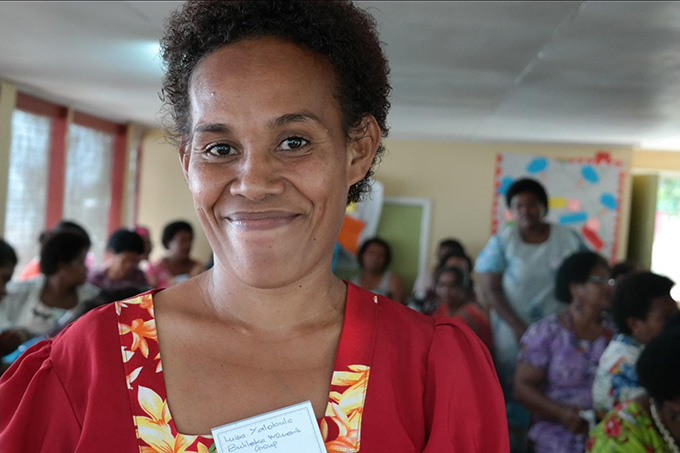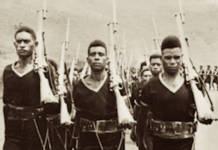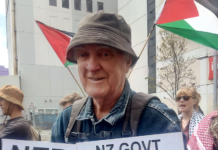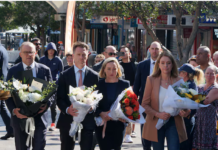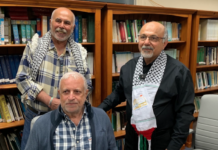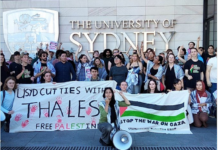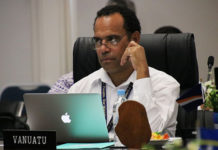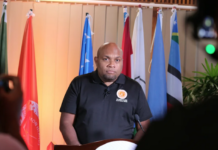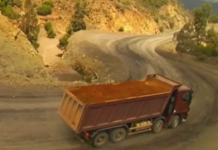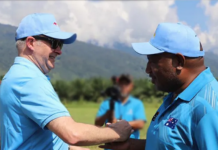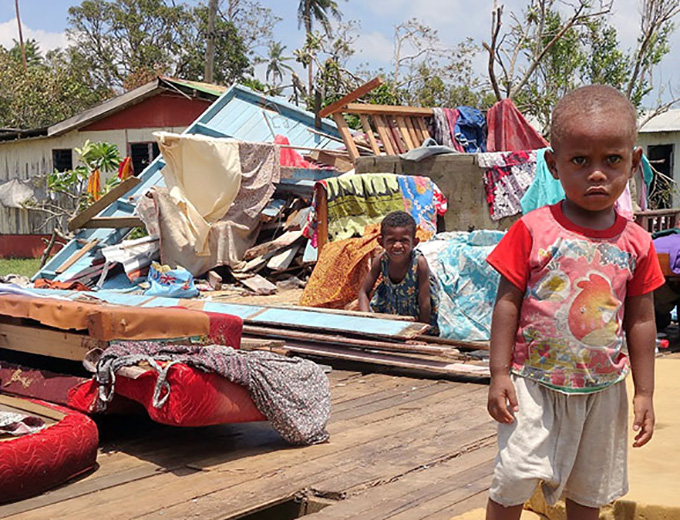
Women have been facing health and security issues since last month’s disaster, reports Ami Dhabuwala of Asia-Pacific Journalism.
While the world was busy celebrating Women’s Day on March 8, in Fiji many women from different communities were struggling for their basic needs.
“In my community, I want to see improved infrastructure including proper crossings and bus shelter,” says a woman from Lautoka, Alecy Amua, who is worried about children’s safety.
“I want young people to access the training and support they need,” says Amacy Antonio of Suva, who is concerned about the violence and bullying in the communities that encourages suicide.
The irony is that the voices of these women are unheard and this leads to major issues that women are facing in Fiji.
“Women in Fiji have been recently facing issues related to food security, market economy, health, infrastructural problems — which are long standing — and access to the water,” says Sian Rolls, programme associate media advocacy of the regional feminist media organisation FemLINKPACIFIC.
“Women from significant communities are apathetic to the issues because they haven’t had the opportunity to access to the leadership or communication training or to speak for their family, for the community or for themselves.
“They cannot find a way to reach out to the local government agency.”
Lengthy, tiresome communications
The process of informing the government about the problems is not only lengthy but also tiresome.
For people living in a settlement, they have to take their issues through the advisory council.
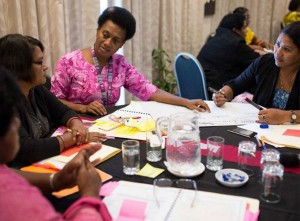
Information is then taken to the district level and finally feedback is sent back to the community.
For those living in a village, they need to work through the provincial council.
Both systems still prefer men for communicating about issues.
This means major gender discrimination and ultimately women are excluded from the decision-making process.
However, the Fiji government has shown improvements in some areas.
Women in Parliament
Fiji has the highest number of women in Parliament in the Pacific – 16 percent.
There are also four women in the Fiji cabinet.
But local areas are underprivileged and women from these communities need government attention.
In 2014, the national gender policy was adopted. But such information is not making its way down to the advisory council level or provincial council level — or even to the villages.
Lack of education about the policy at local level means officials need to be reminded to include women in development planning.
In fact, women are facing problems about articulating their issues and fighting against gender discrimination.
Community radio
To give a voice to Fiji women, femLINKPACIFIC launched its own community radio in 2004.
The purpose of the radio was to bridge the gap between young and older women. Young women are keen to learn new technology whereas older women have not been able to present their issues.
The radio is a platform where women can raise their voice together and solve community issues.
FemLINKPACIFIC’S Sian Rolls believes that the more women are invested in, the better off their community is. With the objective of making women self-sufficient, they are willing to create an environment for their voice to be heard.
While FemLINKPACIFIC’s work is not focused on disaster and relief, its Women’s Weather Watch network and campaigns have been reflecting weather patterns. Its advocates say this programme is the only women’s centre information and communication model being used in the Pacific.
“As a leader I want to see myself, first to be a reliable person and well educated. I must work out my time between my family commitments and socialisation,” says Luisa Yalobula.
She is the leader of Bulileka Women’s Group and thinks that tradition, education, sometimes husband, source of income and communications are the barriers for the leadership.
Rolls says: “It is not only about changing the stories, but it is about bringing their voices to the society. Because when a woman shares her story, experiences on a multimedia platform, it makes a lot of difference in people’s mind.”
After Cyclone Winston
Fiji women used to consider themselves secondary to their husband and children. Because of that they are compromising their own health to make sure that their children’s requirements are taken care of, say advocates.
This includes pure water and hygiene issues. Usually dignity packs do not come with the immediate relief supplies, which accelerates women’s hygiene issues.
In Vatani Kaba village, Tailevu, for example, women need to travel a lot to access basic healthcare. Women have to spend almost $200 to get to the nearest main medical centre.
They have to catch a bus to a jetty and then they have to catch a bus for a nearby town and if they have to go to the capital, Suva, then again catch another bus to reach to centre.
Also, women from this village are facing major issues related to pure water. They have one pool in the middle of the village and it is the only source for them to get pure water.
In 2014, the women got vaginal infections for not getting the pure water.
Now far worse
It took 8 months for their recovery but again a dry spell and Cyclone Winston have made things worse for this village.
FemLINKPACIFIC’s programme associate network coordonation Frances Tawake says: “Many families have moved to the mainland because of the poor access to water in Vatani. If this problem is not solved now, no one will be left at the village.”
The government has not taken this issue seriously even though women have been talking about it in their district meetings.
“We will continue to voice our issues about water until it gets fixed. We will not lose hope. Our grandmothers, our mothers have gone through this and now it’s our turn. This water problem should not continue,” says Merewairita Nasiri, 39, from Vatani Kaba, who is determined to solve this issue for her village.
Apart from this, many of the women have lost their homes and now they are facing problems in terms of their shelter.
“Internal displacement is becoming a major issue for the women. Women are forced to move to the urban centre which may lead to the possibility of sexual exploitation. We do have some sexual harassment cases from the evacuation centres.”
Menka Goundan, a research officer from the Fiji Women’s Rights Movement, gave some insights about the women’s condition after Winston cyclone.
“In some cases, because of the economic insecurity, women are forced to provide one meal a day to their families. Also, some of the families are less likely to send their girl child to school,” says Goundan.
Cyclone Winston first struck western Fiji early last month before double backing and devastating the country on February 20 with a death toll of 44. It has been more than a month now since for these women to try to rebuild normal lives again.
Ami Dhabuwala is a postgraduate student journalist at AUT University. She is reporting on the Asia-Pacific Journalism course.
